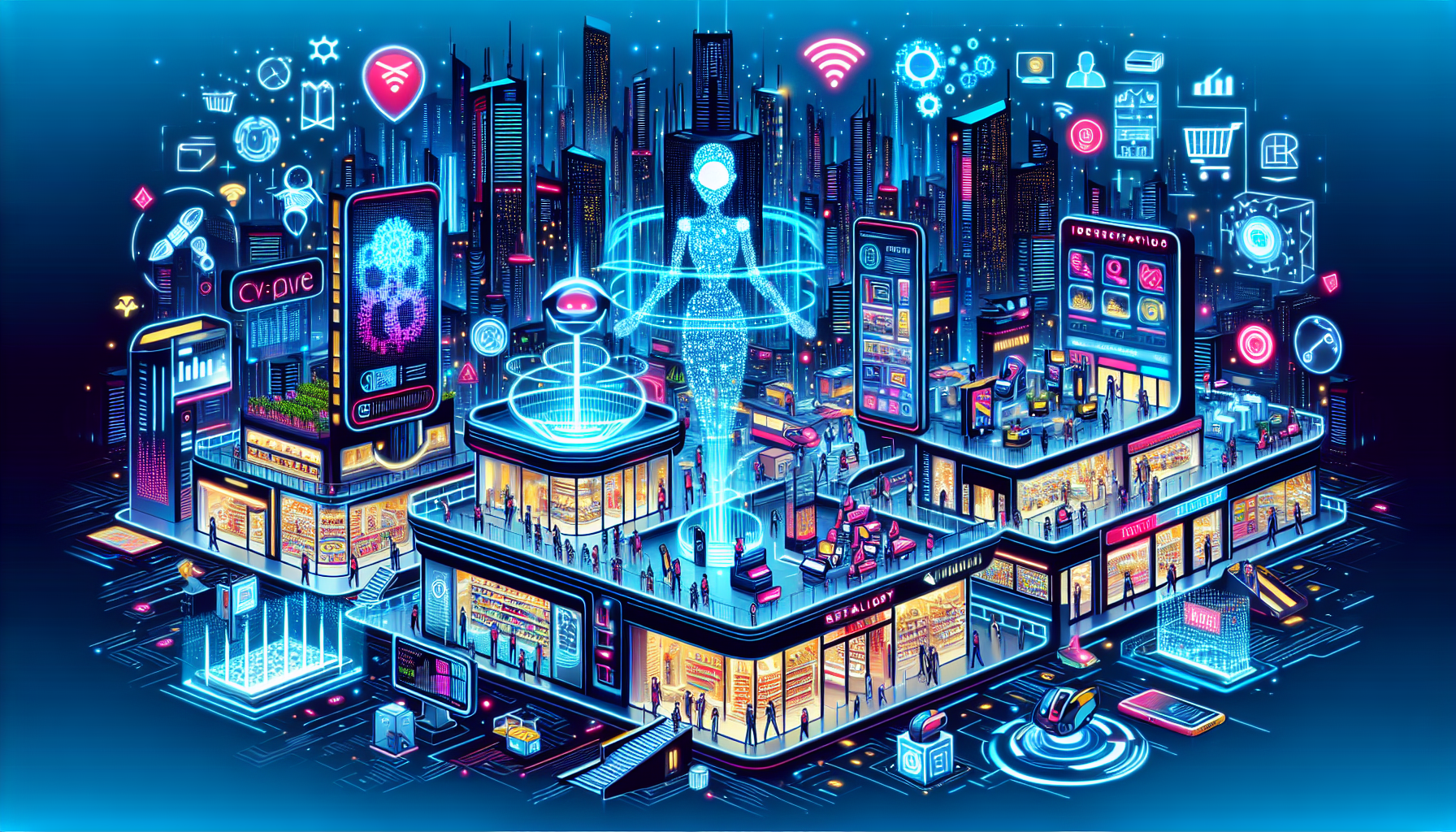The Future of Retail: AI Predictions and Business Implications
1. Understanding AI in Retail
Artificial Intelligence (AI) is fundamentally transforming the retail landscape by enhancing operations, personalizing customer experiences, and driving efficiency. By using AI technologies like machine learning, natural language processing, and robotics, retailers are harnessing data to improve decision-making and optimize outcomes.
2. Customer Experience Personalization
2.1 Enhanced Personalization Techniques
AI empowers retailers to analyze vast amounts of consumer data, allowing for hyper-personalized marketing strategies. Utilizing AI algorithms, businesses can uncover insights about customer preferences and shopping behaviors, tailoring promotions, product recommendations, and personalized content that resonate deeply with individual customers.
2.2 Dynamic Pricing Models
Dynamic pricing, powered by AI, enables retailers to adjust prices in real-time based on factors like demand, competition, and inventory levels. This flexibility not only optimizes sales but also maximizes revenue by ensuring competitive pricing while maintaining profitability.
3. Inventory Management Revolution
3.1 Predictive Analytics for Stock Control
AI applications utilize predictive analytics to forecast demand accurately. By analyzing historical sales data and current market trends, businesses can maintain optimal inventory levels, reduce stockouts, and minimize excess inventory. This reduces carrying costs and enhances customer satisfaction.
3.2 Automated Replenishment Systems
Automated inventory replenishment systems leverages AI to reorder stock before it runs out. These systems ensure that popular items are always available while reducing the cost associated with overstocking less popular goods. Adopting this approach fosters operational efficiency and responsive supply chains.
4. AI-Powered Customer Service
4.1 Chatbots and Virtual Assistants
AI chatbots provide 24/7 customer service, answering queries, assisting with product selection, and guiding users through purchase processes. This not only enhances the customer experience but also significantly reduces staffing costs and allows human agents to handle more complex inquiries.
4.2 Sentiment Analysis
Analyzing customer feedback and social media sentiment with AI tools enables retailers to gauge public opinion in real-time. Retailers can adapt strategies based on this feedback, addressing concerns swiftly and improving overall customer satisfaction.
5. Targeted Marketing Initiatives
5.1 Predictive Customer Segmentation
AI optimizes marketing strategies through predictive customer segmentation, allowing retailers to group customers by behavior and preferences. This targeted approach enhances the effectiveness of marketing campaigns and increases conversion rates.
5.2 Enhanced Advertising Strategies
AI tools can analyze data to improve ad targeting. By understanding which demographics respond well to specific campaigns, retailers can fine-tune their advertising efforts, ensuring that marketing budgets are spent efficiently.
6. In-Store Enhancements
6.1 Smart Checkout Systems
AI-driven smart checkout systems help streamline in-store transactions, reducing wait times and enhancing customer experiences. These systems include automated checkout kiosks and frictionless payment options, improving operational efficiency.
6.2 Augmented Reality (AR) Experiences
Augmented reality applications, powered by AI, enable customers to visualize products in their environment before purchase. By providing an interactive and engaging shopping experience, retailers can increase foot traffic and boost sales.
7. Supply Chain Optimization
7.1 AI-Enabled Supply Chain Management
AI enhances supply chain efficiency through real-time data analysis. Retailers can employ AI algorithms to predict disruptions and swiftly adjust their logistics strategies. Improved supply chain coordination minimizes delays and enhances service levels.
7.2 Robotics in Warehousing
Automation and robotics in warehousing present a paradigm shift in retail logistics. AI-driven robots can pick, sort, and pack products faster and more accurately than human labor, reducing operational costs and improving fulfillment accuracy.
8. Ethical Considerations and Challenges
8.1 Data Privacy Concerns
As AI relies heavily on consumer data, retailers must navigate strict data privacy regulations like GDPR. Ethical management of customer information is crucial; businesses must establish transparent data policies to build and maintain customer trust.
8.2 Job Displacement Risks
The integration of AI in retail raises concerns about job displacement. While AI can create new roles, there’s an essential need for retraining and upskilling current employees to work alongside AI systems and leverage technology for enhanced productivity.
9. Sustainability and AI
9.1 Eco-Friendly Practices
AI can help retailers adopt more sustainable practices by optimizing resource usage. Environmental management systems can track energy consumption and resource waste, allowing businesses to implement strategies that minimize their ecological footprint.
9.2 Supply Chain Transparency
Consumers increasingly seek transparency regarding the sustainability of their purchases. AI can provide insights into product sourcing and lifecycle impacts, ensuring retailers communicate their sustainability efforts effectively.
10. The Role of Omnichannel Strategies
10.1 Integrated Customer Journeys
An omnichannel strategy, facilitated by AI, provides customers with a seamless experience across digital and physical platforms. AI analyzes consumer behavior to create cohesive shopping experiences, adapting the approach to each channel based on customer interactions.
10.2 Loyalty Programs Utilization
AI can enhance loyalty programs by providing personalized rewards and experiences that cater to individual customer preferences. This not only encourages repeat business but also fosters brand loyalty in an increasingly competitive marketplace.
11. Future Trends to Watch
11.1 Advanced AI Technologies
Emerging technologies like quantum computing promise to amplify AI capabilities, allowing for even more complex data analytics and predictive modeling. Retailers that harness these advancements stand to gain considerable competitive advantages.
11.2 Integration with IoT Devices
The Internet of Things (IoT) will significantly influence retail environments by providing real-time data that AI can analyze to enhance operations. Smart shelves, connected devices, and personal sensors will create ecosystem efficiencies that redefine retail operations.
12. Conclusion
The retail sector is on the brink of transformation through AI innovations that optimize every aspect of the customer journey. As businesses adopt these technologies, they must remain agile, address ethical implications, and prioritize customer trust, paving the way for a future that thrives on data-driven adaptability.


